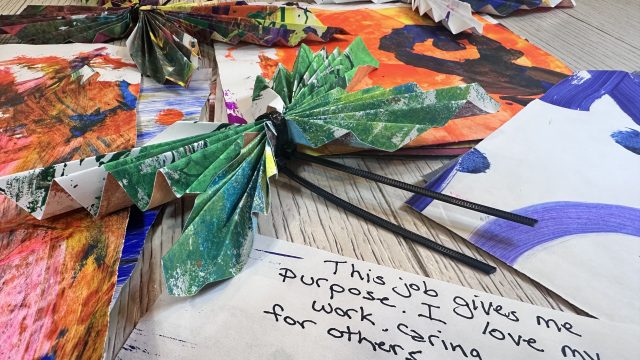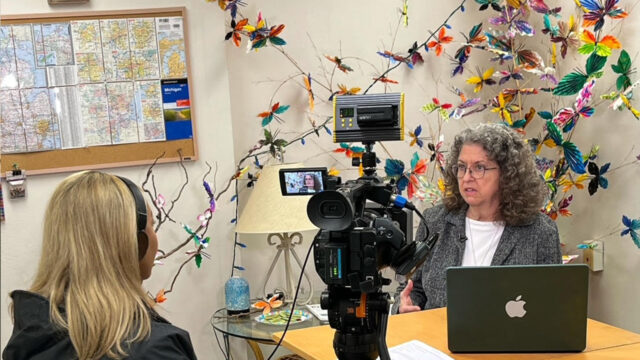Caregiver’s Butterfly Gardens
Our Story

A Caregiver’s Butterfly Garden is a statewide, traveling public art project designed to honor Michigan’s 165,000+ Direct Care Workers (DCWs) — the unsung heroes who provide hands-on care to people across the lifespan. Co-created by IMPART Alliance and AgeAlive, this project uses large-scale, immersive garden installations made of hand-crafted butterflies and botanicals to spotlight care, resilience, and joy.
This project has been made possible through a grant awarded to IMPART Alliance by the Michigan Department of Health and Human Services.
Our Goals

- Uplift and recognize Michigan’s Direct Care Workers
- Provide community-based opportunities for artmaking, healing, and education
- Encourage advocacy and solutions for the DCW shortage
- Engage communities in intergenerational and multicultural expression
- Celebrate the joy and beauty of life through art
About Zahrah

Zahrah Resh, artist in residence for IMPART Alliance, is a contemporary artist residing in East Lansing, Michigan.
Zahrah’s artistic journey began as a young girl growing up in the tropics surrounded by lush colors and flavors. She had her own battle with a life-threatening illness which not only inspired her creativity, but makes her a perfect match to lead the “A Caregiver’s Butterfly Garden” project.
Get Involved!
In The Media

Fourth Installation of A Caregiver’s Butterfly Garden Opens at Ishpeming Multi-Purpose Senior Center

A Caregiver’s Butterfly Garden Takes Flight in Michigan’s Upper Peninsula

A Caregiver’s Butterfly Garden Takes Flight at the Hannah Community Center
This project has been made possible through a grant awarded to IMPART Alliance by the Michigan Department of Health and Human Services.
The IMPART Alliance initiative, led by Michigan State University, is tackling a crisis that affects us all. The need for affordable, high-quality in-home support has never been more urgent in Michigan. Families across the state rely on skilled, professional Direct Care Workers (DCWs) to help their loved ones live safely and comfortably at home. Yet, a critical shortage of trained DCWs is rapidly widening the gap.


